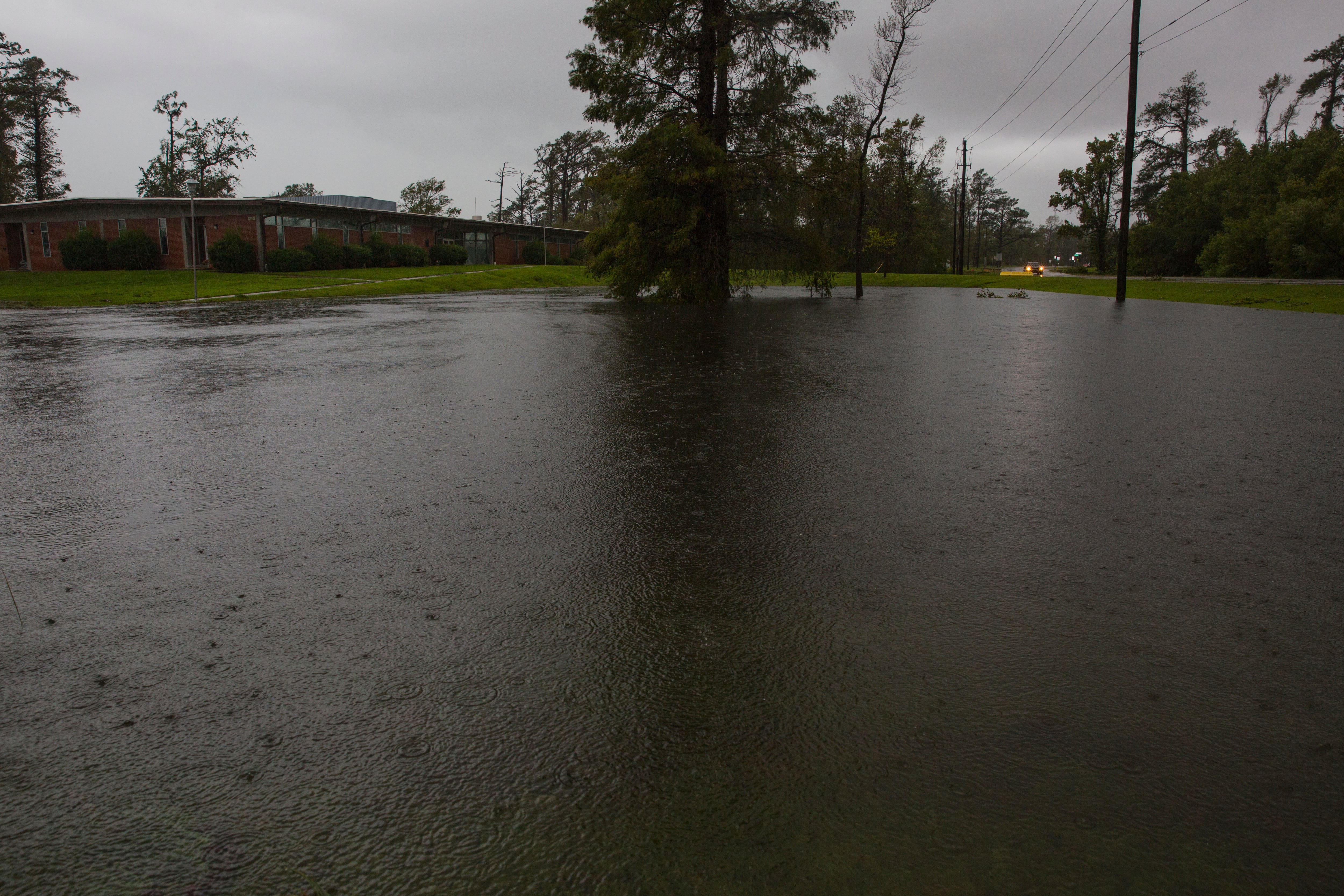Aging Marine Corps installations across North Carolina — home to one of the largest concentrations of Marines and their families — were ripe for a major disaster.
When Hurricane Florence hit in September 2018, it dumped nearly 35 inches of rain on the Tar Heel state and its Marine tenants, working and living in buildings nearly a half-century old.
The storm made landfall more than four months ago, but the damage done to the backbone of the Corps’ East Coast infrastructure is still having a serious impact on mission and training. Those bases include Camp Lejeune and the air stations at Cherry Point and New River, North Carolina.
Nearly 800 facilities across Marine Corps Installations East were damaged in the storm and roughly 500 of those are still not occupiable, which includes the main building that houses the 24th Marine Expeditionary Unit, according to Maj. Gen. Vincent Coglianese, the commander of Marine Corps Installations Command.
RELATED

About 3,000 Marines can’t work in the buildings and nearly 1,000 Marine families have been affected by damage done to on-base housing.
It’s a significant problem, according to Coglianese. The Corps’ installations across the East Coast don’t just house Marines, they’re important for projecting combat power.
“We fight from our bases,” Coglianese told Marine Corps Times in an interview. That includes support functions to troops down range to flying drones in real-world operations.
Washed-out culverts are hurting the Corps’ ability to move equipment and vehicles by rail.
“We literally could not right now deploy via rail,” Coglianese said. “If we had to get out of town quickly it would impact us getting out.”
The rail links from the base are important for moving supplies, ammunition and heavy vehicles like tanks. The Corps’ inability to move by rail is also having a “serious impact to training,” Coglianese said.
Sometimes Marines move heavy armored vehicles to training bases like Twentynine Palms, California, which is home to a lot of the Corps’ predeployment and certification exercises before Marines head downrange.
To make up for some of these shortfalls, the Corps is putting in more than 200 trailers to create temporary work spaces for units whose buildings were destroyed, but there is a cost to trying to find space, Coglianese explained.

“It’s impacting mission,” he said. “We will fight through that, but the bottom line is we need money.”
A conservative estimate for repairs and replacement of destroyed buildings across Marine Corps Installations East is around $3.6 billion.
“We don’t have this money internally,” Coglianese said. “My entire budget for sustainment … per year is about $800 million."
That price tag includes repairs but also 31 buildings that need to be completely replaced. Some of the buildings are just not worth the cost of repairs and it is more cost effective to replace some of the facilities, Coglianese explained.
Newer facilities will also help the Corps weather future storms. Much of the damage done to the base was the result of aging buildings that are 40 to 50 years old.
Buildings built in the past ten years sustained nearly no damage except a few cases of minor leaking, Coglianese said.
The damage is also impacting families stationed at Marine bases across North Carolina. On-base housing is still not an option for new Marines headed to the area.
And damaged communities surround the bases has also resulted in a housing shortage in the region, causing a rise in rents and house prices.
Marines have been told to find housing before they move their families to the area. Some Marines are deciding to not move their families at all and are checking into the command as geo-bachelors, or geographically separated families, which can add substantial costs to military families.
To alleviate some of the burden, basic allowance for housing, or BAH, has been increased between 8–9 percent.
Shawn Snow is the senior reporter for Marine Corps Times and a Marine Corps veteran.




